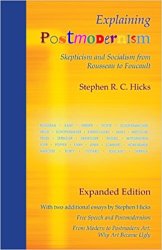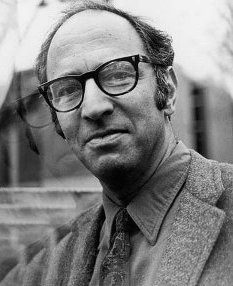Good question about a philosopher’s beliefs, character, and the connections between them. John Horgan reviews Morris’s memoir-and-critique of Kuhn’s proto-postmodernism.
I discuss Kuhn’s impact on first-generation postmodernism in Explaining Postmodernism, noting first how in The Structure of Scientific Revolutions, Kuhn concludes that metaphysical subjective relativism is true (if we can use that word):
“the proponents of competing paradigms practice their trades in different worlds.”
His argument in part is based on a critique of science education — scientists are not educated so much as brainwashed:
“the member of a mature scientific community is, like the typical character in Orwell’s 1984, the victim of a history rewritten by the powers that be.”
Consequently, Kuhn infers that science has nothing to do with anything called “truth”:
“We may, to be more precise, have to relinquish the notion, explicit or implicit, that changes of paradigm carry scientists and those who learn from them closer and closer to the truth.”
 Sources and implications developed in Chapter 3 of my Explaining Postmodernism: Skepticism from Rousseau to Foucault.
Sources and implications developed in Chapter 3 of my Explaining Postmodernism: Skepticism from Rousseau to Foucault.
